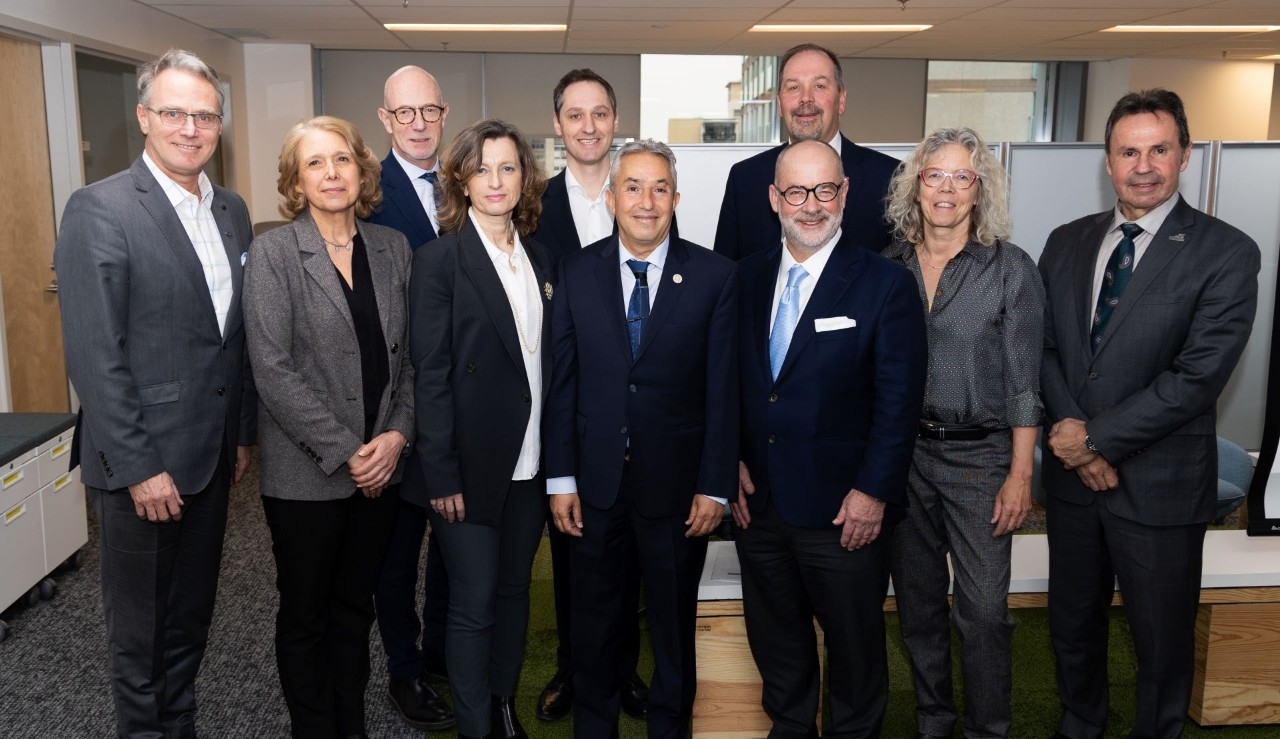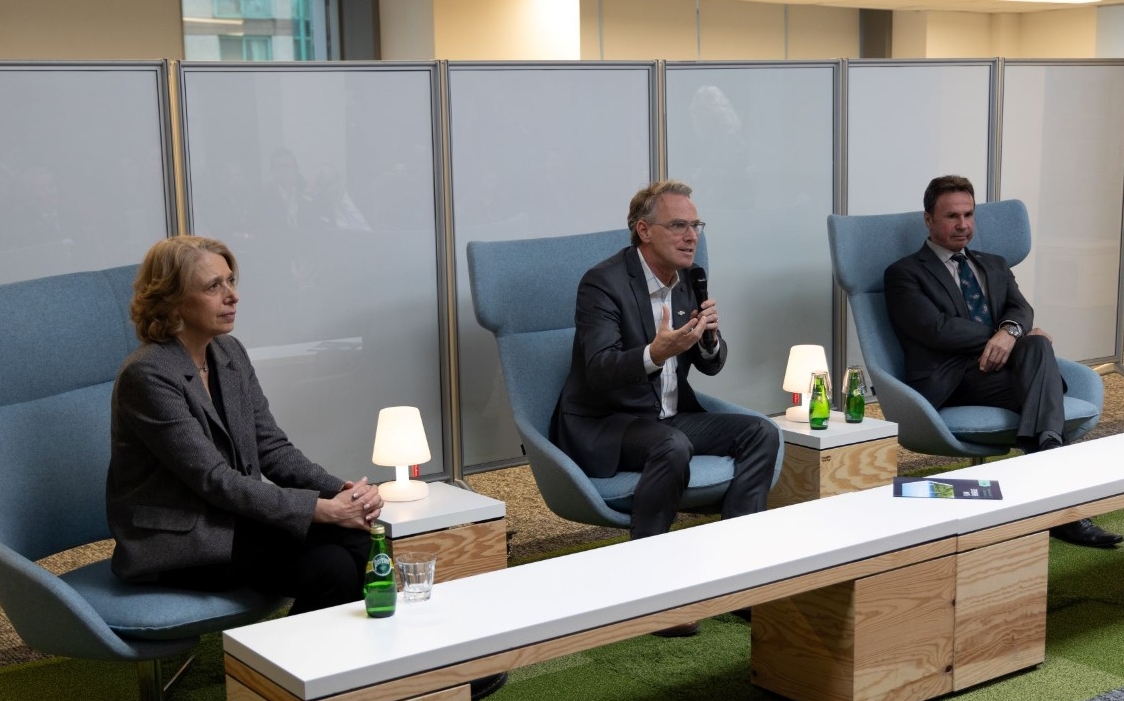‘Spoiled by hydroelectric power’
The city of Shawinigan, once a cradle of industry in Quebec and Canada, has undergone a radical shift since the departure of manufacturing plants and the secure union jobs that left with them. Concordia has been a valuable partner in this transition, noted Mayor Michel Angers, a reference to a thematic campus centered on energy transition unveiled last May.
“When I announced this collaboration to a group of students and teachers at the only English-language high school we have left in Shawinigan, they were visibly excited to know that Concordia was actively involved with their city,” said Angers. “I want to especially thank Graham Carr for his sincerity and vision, and Power Corporation, for its involvement with the Volt-age project.”
Damphousse, the Mayor of Varennes, spoke about the Montreal suburb’s aggressive green energy plans, which includes a $1-billion biofuel plant, and alluded to the work of Volt-age CEO Karim Zaghib, whose research at Concordia has helped make Quebec a pioneer of lithium-ion battery innovation.
As president of the Union des municipalités du Québec (UMQ), Damphousse also outlined the goals of Plan Énergie. Adopted last September, the plan empowers municipal stakeholders to help the Government of Quebec on a range of energy and energy consumption reforms.
“Historically, we have been spoiled by the overabundance and relative affordability of hydroelectric power in Quebec, but it is urgent that we innovate, diversify and change our behaviours,” said Damphousse.
“This effort has to involve partners like Concordia, all levels of government, community groups and ordinary citizens, and private partners like Power Corporation.”
 From left: Martin Damphousse, Mayor of Varennes; Maja Vodanovic, BFA 94, Mayor of Lachine; President Graham Carr; Dominique Bérubé, vice-president, Research and Graduate Studies; Olivier Desmarais, senior vice-president, Power Corporation; Karim Zaghib, CEO, Volt-age; Paul Chesser, BA 94, GrDip 97, vice-president, Advancement; Paul Genest, senior vice-president, Power Corporation; Ursula Eicker, director, Next-Generation Cities Institute; Michel Angers, Mayor of Shawinigan.
From left: Martin Damphousse, Mayor of Varennes; Maja Vodanovic, BFA 94, Mayor of Lachine; President Graham Carr; Dominique Bérubé, vice-president, Research and Graduate Studies; Olivier Desmarais, senior vice-president, Power Corporation; Karim Zaghib, CEO, Volt-age; Paul Chesser, BA 94, GrDip 97, vice-president, Advancement; Paul Genest, senior vice-president, Power Corporation; Ursula Eicker, director, Next-Generation Cities Institute; Michel Angers, Mayor of Shawinigan.
 Mayors Vodanovic, Damphousse and Angers answering questions following their presentations.
Mayors Vodanovic, Damphousse and Angers answering questions following their presentations.